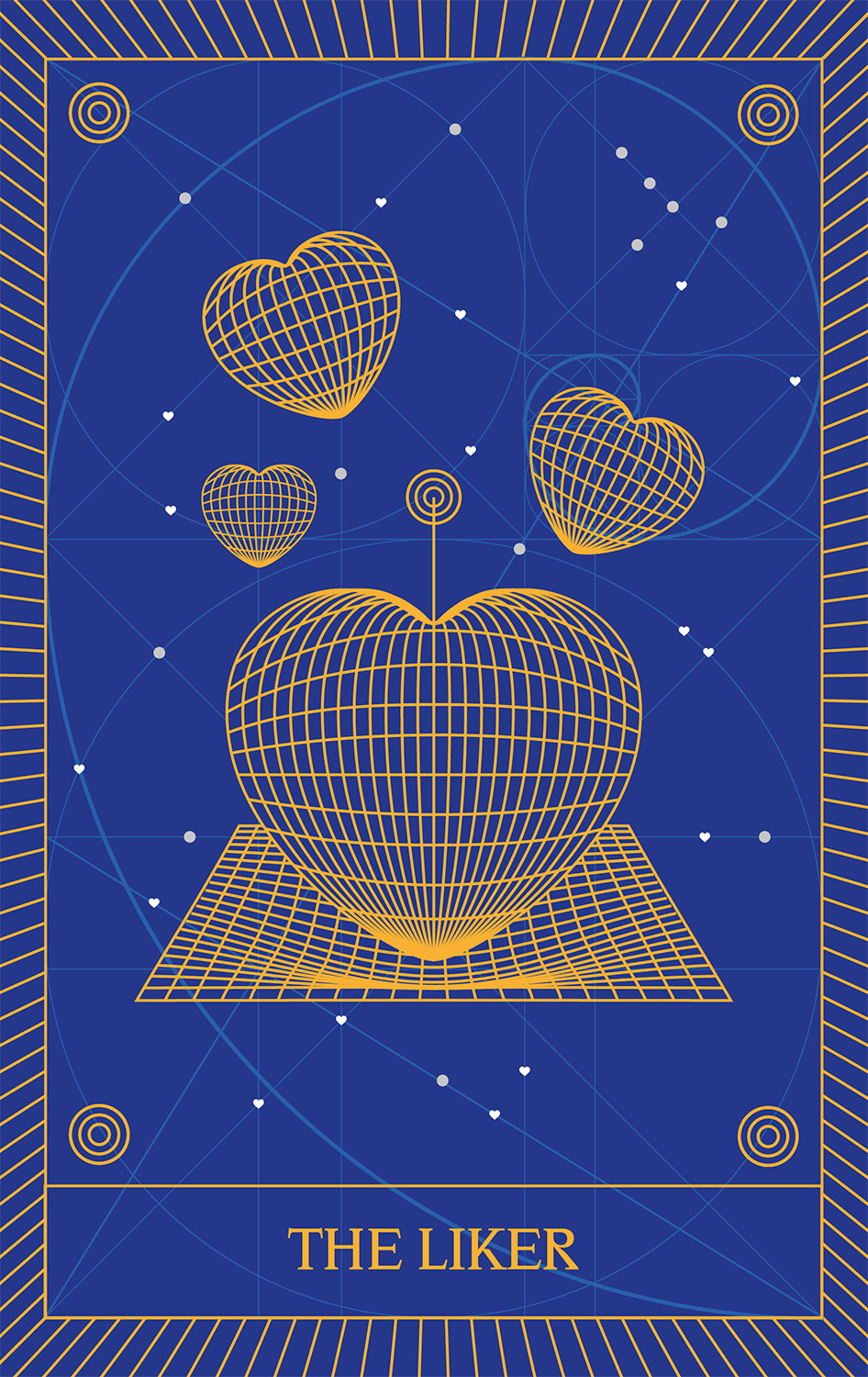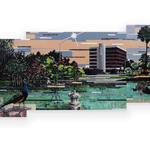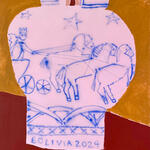
Noemi Iglesias Barrios
Bio
Noemi is a natural observer of human behaviour in different contexts and cultures and a clear example of what we call “contemporary nomadism”. Since 2009 the artist has lived and worked in Greece, England, Finland, Italy, Hungary, China, and Korea. In 2019 she finished her Master's Degree at the Tainan National University of the Arts, where she researched contemporary ceramic practices for 3 years thanks to the Taiwan ROC Scholarship from the Taiwanese government.
Recently, he has received the "Artificial Empathy" residency at Gluon (BE) organized by Ars Electrónica through the European Digital Deal initiative with his project “The Falling City”, as well as the “Maria de Salamanca” National Engraving Award from the Museum of Contemporary Spanish Engraving and the Unicaja Foundation Award for Crafts. His work has been seen at the Thyssen Bornemisza Museum in Madrid, DG Connect of the European Commission, iMAL Center for Digital Culture and Technologies in Brussels, Electron Festival in Switzerland, the Gimhae Clayarch Museum in Korea, the Aichi Prefectural Museum of Art in Japan , the Yingge Ceramics Museum and the MOCA in Taiwan, LABoral Center for Art and Industrial Creation and the Espacio Líquido Gallery in Gijón.
Media such as ABC newspaper, Libération, China Times, Elementmental or Arte al Límite have written about her work.
Currently, Noemi is researching Cobalt extraction and urban recycling processes within the sculpture department of the University of Fine Arts of Lisbon thanks to a scholarship from the Foundation for Science and Technology (FCT) of Portugal.
This project is also being supported by the “Culture moves Europe” scholarship program, the Cultural and Scientific Department of the Spanish Embassy in Belgium, and the PXL-MAD University in Hasselt.
In 2024 she had her first solo exhibition “Love me Fast” at the Museo Nacional Thyssen Bornemisza in Madrid, curated by Rocío de la Villa. Soon, in the month of December she will inaugurate the individual exhibition "Landscapes of Affection” at the Museum of Fine Arts of Asturias, curated by Blanca de la Torre
Statement
Noemi Iglesias Barrios is a multidisciplinary artist and researcher working with porcelain and long- durational performative formats. Her practice is concerned with the role of visual arts at the intersections of experimental disciplines such as sculpture and digital technologies, using traditional ceramics techniques to generate innovative and provocative concepts within the contemporary art scene. Her work, aesthetically beautiful and attractive, is focused on the production of porcelain and new media installations to report how emotional experiences, such as falling in love, are influenced by consumerist strategies.
Additional information
Contexto
Las relaciones contemporáneas se construyen, gestionan y almacenan a través de nuestros dispositivos móviles, lo que nos puede llevar a considerar estos aparatos como una parte activa de nuestro organismo, es decir, una extensión corporal de momentos íntimos y relaciones humanas. Gradualmente, hemos llegado a aceptar el intercambio de estas informaciones sensibles por servicios gratuitos y convenientes de mensajería o hiperconectividad que paralelamente transforman aspectos de la vida humana en datos computacionales.
A través de este proceso, conocido como dataficación, grandes dominios de acciones sociales se vuelven susceptibles de seguimiento en tiempo real y análisis predictivo, transformando la intimidad en valor y llevándonos a un sistema escalonado donde la conciencia cualitativa de nuestras relaciones emocionales se ve aplanada por una acumulación cuantificable de datos.
Existe una creencia generalizada en la datificación como un reflejo objetivo del comportamiento humano. Sin embargo, el algoritmo empleado es intrínsecamente selectivo y manipulador, ya que identifica patrones de conducta o actividades en base a los datos que se dejan de manera inconsciente cada vez que interactuamos con nuestros dispositivos móviles. Estos datos sirven para predecir comportamientos futuros agrupándolos en un número concreto de perfiles.
Y esta es la palabra clave: predecir.
Una predicción es una suposición, una hipótesis… Entonces, hasta qué punto los usuarios se dejan llevar por lo que supuestamente están interesados en un futuro más o menos inmediato, perpetuando un sistema en el que su libre albedrío está condicionado por la decisión de un agente digital, una combinación algorítmica, y hasta qué punto estos datos son realmente confiables y reflejan fielmente la personalidad y los gustos de cada uno?
Algo así como el horóscopo, que interpreta nuestra personalidad y tendencia futura en base a una serie de datos como son, en este caso, la posición de las estrellas en el momento de nuestro nacimiento. ¿Tienen todos los Aries una personalidad extrovertida e impaciente? Las interpretaciones sobre cómo es y cómo será un signo específico, cubren un espectro real de la personalidad, o son unas afirmaciones que aleatoriamente pueden considerarse como verdaderas?
Sobre este contexto se plantea la producción de la pieza Dat - Astral Chart, una máquina de predicciones aleatorias que reúne 12 tipos de personalidades basadas en el comportamiento digital de los usuarios.


2.5 x 4m / 98.4 x 157 in















